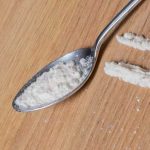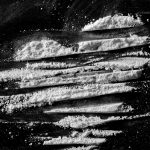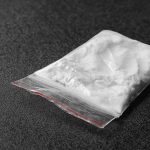- Cocaine Withdrawal Symptoms
- Cocaine Withdrawal Timeline
- Factors That Affect Withdrawal
- Cocaine Detox
It’s easy to become addicted to cocaine if you regularly abuse it. Cocaine increases the presence of dopamine, a chemical that’s part of the brain’s reward system. Each burst of dopamine you get from cocaine makes your brain more reliant on drug use to feel good.
Addiction makes it difficult to stop using cocaine, especially on your own. If you stop abruptly, cocaine withdrawal symptoms can be intense and may drive you back to the drug for relief.
Cocaine Withdrawal Symptoms
Symptoms of cocaine withdrawal include:
- fatigue
- depression
- intense cravings for cocaine
- restlessness and agitation
- general discomfort
- increased appetite
- slower activity
- mood swings
- vivid and unpleasant dreams
Cocaine cravings may last for months after quitting heavy, prolonged cocaine use. Relapse is possible even if you’ve been off cocaine for a while. But recovery is possible, too.
Cocaine Withdrawal Timeline
The high from cocaine is brief, only lasting about 5 to 30 minutes, depending on how you use it. Your liver will start breaking down cocaine within 2 hours. Most of the drug will be eliminated from your bloodstream in 4 hours.
Because the body breaks down cocaine quickly, withdrawal symptoms can start within a few hours to a few days of your last dose.
First Phase
The first phase of withdrawal is the crash that follows heavy cocaine use. Symptoms in this phase may be:
- irritability
- anxiety
- exhaustion
- fatigue
- increased appetite
- less desire to use cocaine
- suspicion or paranoia
- a feeling of general dissatisfaction (acute dysphoria)
Second Phase
The second phase of withdrawal comes with increased cravings to use cocaine, difficulty concentrating, mild lethargy, and irritability. This phase usually lasts a week or 2 but can last up to 10 weeks.
Third Phase (PAWS)
The third phase is called “extinction” or post-acute withdrawal syndrome (PAWS). Sometimes PAWS sets in a few months after you think the withdrawal process is over.
You may have cravings once in a while that are triggered by certain situations. Cravings can last for a few months if you abuse cocaine heavily. You might also experience insomnia (difficulty sleeping), depression, and suicidal thoughts.
Factors That Affect Cocaine Withdrawal
Not everyone will have the same experience with cocaine withdrawal. Several factors can affect the length and severity of the process.
How Long You Abuse Cocaine
If you’ve been abusing cocaine for a few months, your withdrawal experience will likely be less challenging than someone who’s been abusing it for years. But if you take it every time the high wears off and the other person uses it once a day, that can make a difference, too.
How You Use Cocaine
Snorting and injecting cocaine takes it quickly into your bloodstream for a more intense effect than you’ll get if you smoke it or rub it on your gums. The withdrawals that follow may also be more intense, though they may not last as long.
How Much Cocaine You Use
People who use high doses of cocaine tend to have stronger withdrawal symptoms than people who use low doses. Cocaine has a more potent effect on your body and mind when you take it in large amounts.
Polysubstance Abuse
Using other drugs or alcohol with cocaine can slow down the withdrawal process and make it more difficult. It’s more work for your body to process other drugs while also adjusting to not having cocaine. If you stop using all substances at once, that can make withdrawal harder still.
Your Mental Health
If you’re struggling with mental health issues other than addiction, that can complicate the withdrawal process. Co-occurring disorders also make relapse more likely.
Your Body
Healthy, fit, young people tend to have faster metabolisms that can break down drugs and get them out of their system faster. If you have physical health problems, are overweight, or are over 60 years old, the withdrawal process may be longer and more challenging.
Your Environment
If you stop using cocaine in an environment that triggers substance abuse, that can hamper your success. A supportive environment where you are comfortable and safe is optimal for cocaine withdrawal.
Cocaine Detox
Cocaine detox (getting the drug out of your body) can be difficult to do alone. Your body and mind are profoundly affected by cocaine. If you stop taking it abruptly, the withdrawal symptoms can be intense. They may drive you to take more cocaine for relief.
Some people overdose during the cocaine detox process. Their tolerance decreases when they stop using the drug, but they relapse and take the same dose as before. That dose is then more than their body can handle.
Cocaine overdose is life-threatening as it can cause a heart attack and stop your breathing.
Weaning off cocaine is challenging because of the strong cravings that come with cocaine dependence. It can also be difficult to tell how much and how often to reduce your cocaine use to wean successfully and to remain consistent with your plan.
Having outside support during detox is essential for your safety and success.
Treatment Options For Cocaine Addiction
Once the detox and withdrawal process is over, you can start addiction treatment. Treatment may take place at an inpatient or outpatient treatment facility, depending on your personal needs.
The most effective cocaine treatment programs are comprehensive—addressing all the issues surrounding addiction. Not only does cocaine abuse hijack your mind, but it can also damage your physical health, relationships, financial security, and more.
Treatment options for cocaine addiction may include:
- cognitive-behavioral therapy
- support groups
- exercise and recreation
- vocational training
- nutritional guidance
- yoga and meditation
- family therapy
- 12-step programming
- mental health care
- care for medical conditions
The goals of addiction treatment are to help you live a healthy life without cocaine and to teach you skills for resisting relapse in the face of everyday struggles.
To learn more about cocaine withdrawal and treatment options, reach out to a specialist at Northeast Addictions Treatment Center today.
Sources
Written by
Northeast Addition Editorial Team
©2024 Northeast Addition Center | All Rights Reserved
This page does not provide medical advice.







